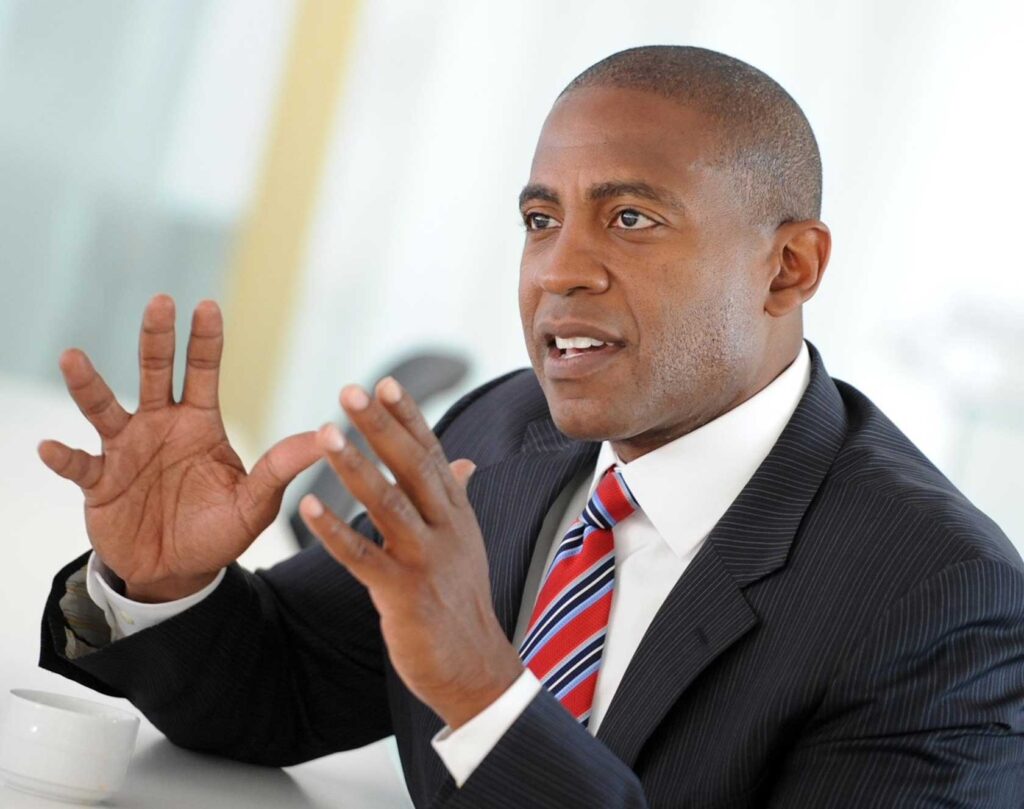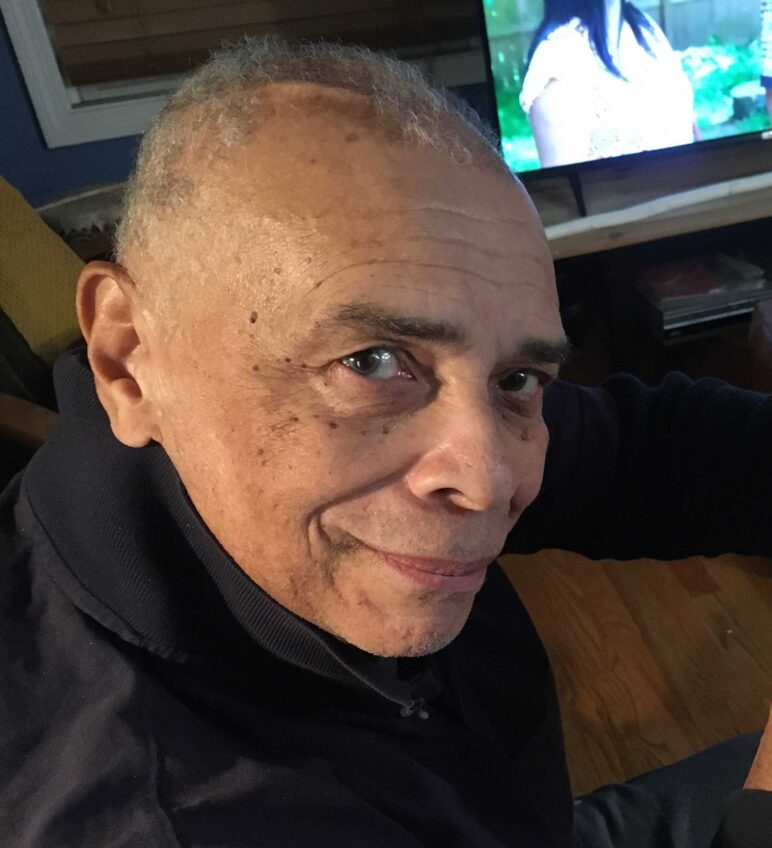
The wealthy federal judge who is set to pronounce sentence on Ozy Media founder Carlos Watson next month is the subject of motions focused on financial conflicts of interest and flawed jury instructions.
The legal moves seek to throw out securities fraud convictions against the Black media executive and force U.S. District Court Judge Eric R. Komitee, a former federal securities fraud prosecutor who presided over the trial, to step aside.
Watson, 55, a Harvard College and Stanford Law graduate from Miami, is facing 37 years in prison after being found guilty by a federal jury of defrauding investors in his alternative media company, which featured interviews with political and entertainment celebrities and produced successful podcasts and festivals.
According to defense counsel Andrew Frisch, the judge had tens of millions of dollars invested in hedge funds that gave him financial stakes in four of the companies allegedly victimized by California-based Ozy Media – Goldman Sachs, Google owner Alphabet Inc., Live Nation, and JPMorgan Chase.
Under federal law, judges must recuse themselves from cases when financial conflicts — or even the appearance of conflicts — arise, said Frisch.
“It’s not only whether it’s an actual violation but also the appearance,” he said. “That’s enough to force them to step aside because it goes to the integrity of the judiciary.”
While passive investments in a mutual fund may not constitute a conflict, Komitee’s holdings involved huge amounts of money in multi-billion-dollar firms to which he had long ties, including service as general counsel. He also serves on the board of a foundation financed by his former employer’s earnings.
In essence, Komitee is in a select group of hedge fund investors who are very sophisticated players with close knowledge of where the funds’ monies are going, said Frisch.
“In this case, a judge is entangled in a way we don’t usually see,” said Frisch. “This overlap between wealth and the judiciary is something new and may require new statutes and outside oversight to ensure a fair trial.”
Komitee served as general counsel of Viking Global Investors for ten years before being nominated to the federal bench by President Donald Trump and winning confirmation in 2019. He had $6 million to $30 million invested in Viking and from $10 million to $60 million in other hedge funds managed by former Viking portfolio managers.
Frisch said his holdings gave him anywhere from $126,000 to $1.1 million in financial interests in the four companies involved in the Watson case. While Komitee cleared himself of any conflict at the outset of the trial, his 2023 disclosure documents — which only became available in October — raised a red flag with the defense, prompting the motion.
Watson’s team points to a separate case in which the federal appeals court earlier this year ruled that a judge should have recused himself in a case because his wife owned $15,000 of stock in one of the defendant’s firms.
The prosecution has rejected the defense argument on both procedural and substantive grounds.
A separate motion seeks to vacate the convictions based on Komitee falsely telling the jury that no finding of intent to defraud was needed to convict, according to prominent Harvard Law Professor Ronald S. Sullivan Jr., the Watson defense attorney who argued the case in the Brooklyn federal courthouse.
One of the key misleading instructions to the jury came on the first element of wire fraud charge, according to Watson’s defense filing, which quoted the judge as saying, “Even if you conclude that the defendant believed that ultimately everything would work out, so that no one would lose any money, that does not require a finding by you that the defendant acted in good faith. Again, no amount of honest belief on the part of a defendant that the scheme will ultimately make a profit for the investors will excuse fraudulent actions or false representations by him.”
Sullivan objected to the instructions, proposing the judge tell the jury that Watson could not be guilty of wire fraud unless he intended to harm Ozy’s investors. However, Komitee rejected that argument. The prosecution backed up the judge in its most recent response to the motion.
If the motions are denied, Watson’s sentencing will take place on Dec. 13. Defense counsel will then be free to appeal the convictions.
The back-and-forth over the recent filings come after a number of courtroom observers and one of the witnesses raised objections to Komitee’s conduct during the trial, saying he demonstrated racial bias towards the Black defendant and his legal team.
From the start of the case, Watson’s defenders said he was being singled out because of his race, pointing to the prosecution team’s record of focusing on Black defendants and going after Watson for corporate practices otherwise tolerated in the Wall Street-Silicon Valley culture of hype-makes-right.
But the jury sitting in the Eastern District of New York felt differently, buying the government’s argument, based on key testimony by two of Watson’s former colleagues, that he routinely inflated revenue projections, lied about contracts and audience size and facilitated a call with Goldman Sachs in which a senior Ozy employee pretended to be a supportive YouTube executive.
Throughout the trial, Watson’s family and friends appeared as a supportive presence in the courtroom, often gathering in prayer on Cadman Plaza outside the courthouse, and at times vocally objecting to the judge’s demeanor toward witnesses and Watson’s attorneys, both Sullivan and Shannon Frison, a former Massachusetts judge who represented Ozy.
“For unknown reasons, the court’s judicial temperament was uncharacteristically aggressive, demeaning and off-putting,” said Sullivan.






